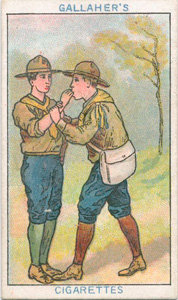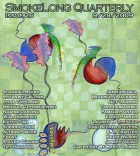I admire the dream-like quality of this story, because it arises from extremely precise descriptions rather than vague and nebulous ones. In fact, the entire story reminded me of the simultaneously stark and lush dream landscapes by Dali or de Chirico. Yet, one sentence stood out and made me curious: “But he hadn’t dreamed it.” Why this insistence on the “realness” of the episode?
As I was writing that moment in the kitchen with Sam and his mother, I was thinking about that indignant feeling I used to get when I was a kid and I would be trying to tell an adult a story about something interesting that had happened to me or something I had seen, and they would either dismiss it or tell me I hadn’t really understood what was going on. It’s something that adults do all the time to children—because the adult, of course, has a more extensive arsenal of experience and a way better grasp of context. But when you’re a kid, it’s tremendously frustrating—it’s like someone is trying to deny the realness of your own vivid experience. It’s bizarre, too, how the vividness of those experiences stay with you—even years later when you look back, and realize, yeah, you probably didn’t have all your facts right. For Sam, this moment with the birds is, and will always be, very real.
“—for a moment he had a flash of understanding—but then it eluded him.” I love it that the flash of understanding remains unspecified, to be supplied by the imagination of the reader. Do you have your own ideas about what Sam (almost) understands at that moment? Will he understand when he’s older? Or has he lost his chance?
Honestly, I’m not sure that I do. I was gambling a little here. You know those moments when you have a feeling that’s more complicated and nuanced than anything you know you can hope to explain? That’s what I was hoping to evoke. It isn’t that Sam guesses the specifics of the situation or what these messages contain, only that he picks up a little on a feeling of distance, or apartness, or the sadness of something that can’t be really resolved. He doesn’t have a handle on this yet, but he will… these are things that find us all sooner or later, unfortunately.
As I said, I loved the specific details in this story; e.g. the pigeon’s eye, the sounds they’re making, and the energy singing through the cage’s wires. But the story also works on a more general level for me: as a story about childhood perhaps, or a story about being on the cusp of adolescence. Did this story originate with a specific image (perhaps as a response to a prompt) or with a more general idea?
This story was originally written as an assignment for one of my MFA classes and the prompt was very vague: we were supposed to write a piece that had a “mystery” in it. I was trying to come up with something to write about and suddenly I remembered how, when I was little, one of my neighbors kept this hutch of messenger pigeons. I used to walk down the street to look at them and then one day I wandered down there and the cage was completely empty. There was no proof the birds had ever been there, and no one else I know saw them there. I always wondered what happened to those pigeons. It was weird—I hadn’t thought about it years and I have no idea what made me recall it at that moment.
I saw in your bio that you have some great publications forthcoming. Congratulations! What are your current writing projects?
Thanks! I’m trying my hand at something a little longer now—a novella or short novel. I’m not sure yet where it’s going to fall in terms of length. It’s epistolary—a piece written as a series of e-mails from a scientist to her a colleague who’s out in the field. I’ve always loved reading letters and e-mails. They have this immediacy to them and there’s also that sneaky feeling, like you’re getting to listen in on something you weren’t intended to hear. The concept seemed like a fantastic plan, but it’s turned out to be a lot harder than I thought. With the looseness of the form you’re not as nailed down to a straightforward plot and you have a lot of leeway to move in a lot of different directions, which is both a blessing and a curse. We’ll see how it goes.



 The core workshop of SmokeLong Fitness is all in writing, so you can take part from anywhere at anytime. We are excited about creating a supportive, consistent and structured environment for flash writers to work on their craft in a community. We are thrilled and proud to say that our workshop participants have won, placed, or been listed in every major flash competition. Community works.
The core workshop of SmokeLong Fitness is all in writing, so you can take part from anywhere at anytime. We are excited about creating a supportive, consistent and structured environment for flash writers to work on their craft in a community. We are thrilled and proud to say that our workshop participants have won, placed, or been listed in every major flash competition. Community works.